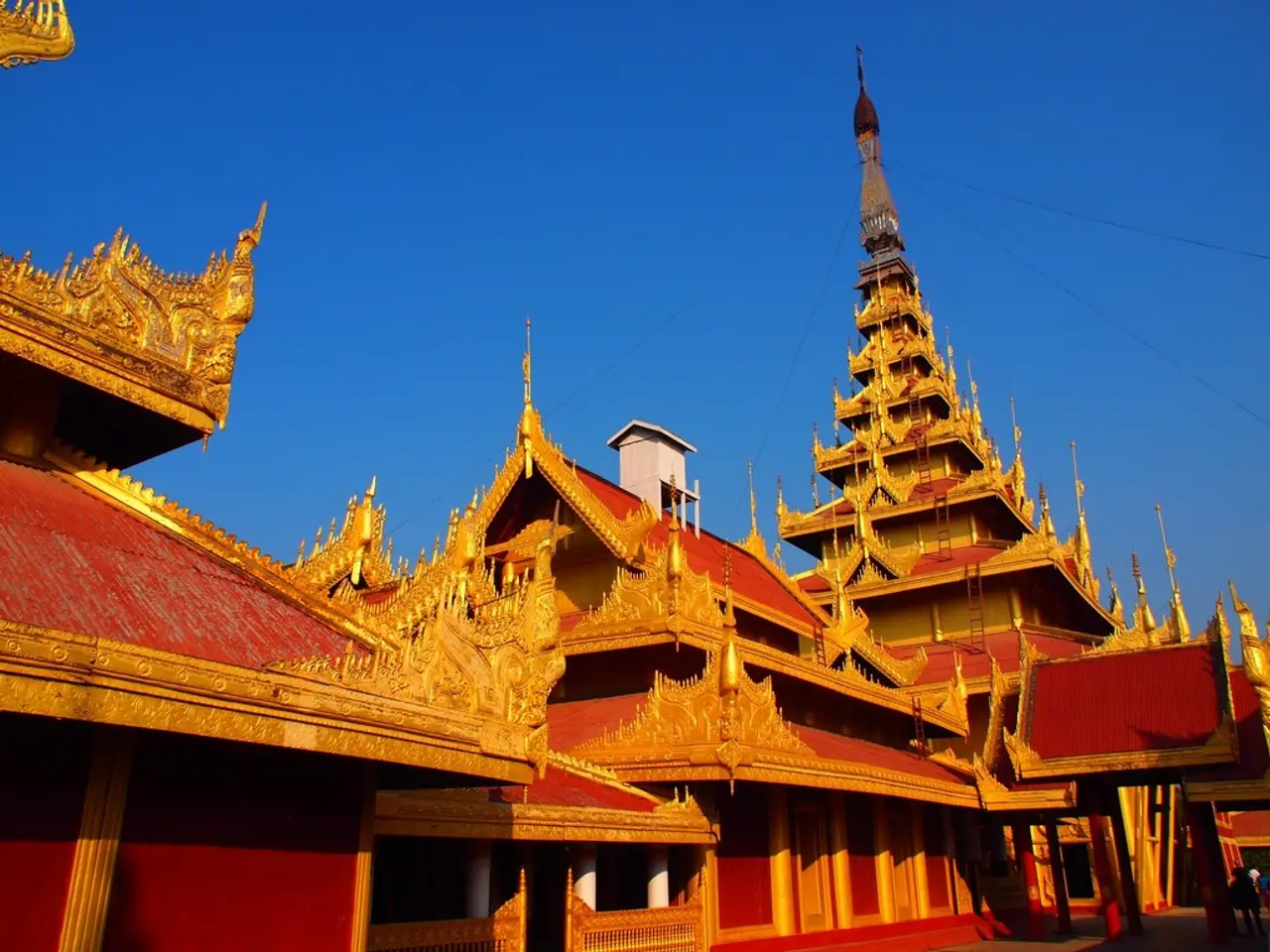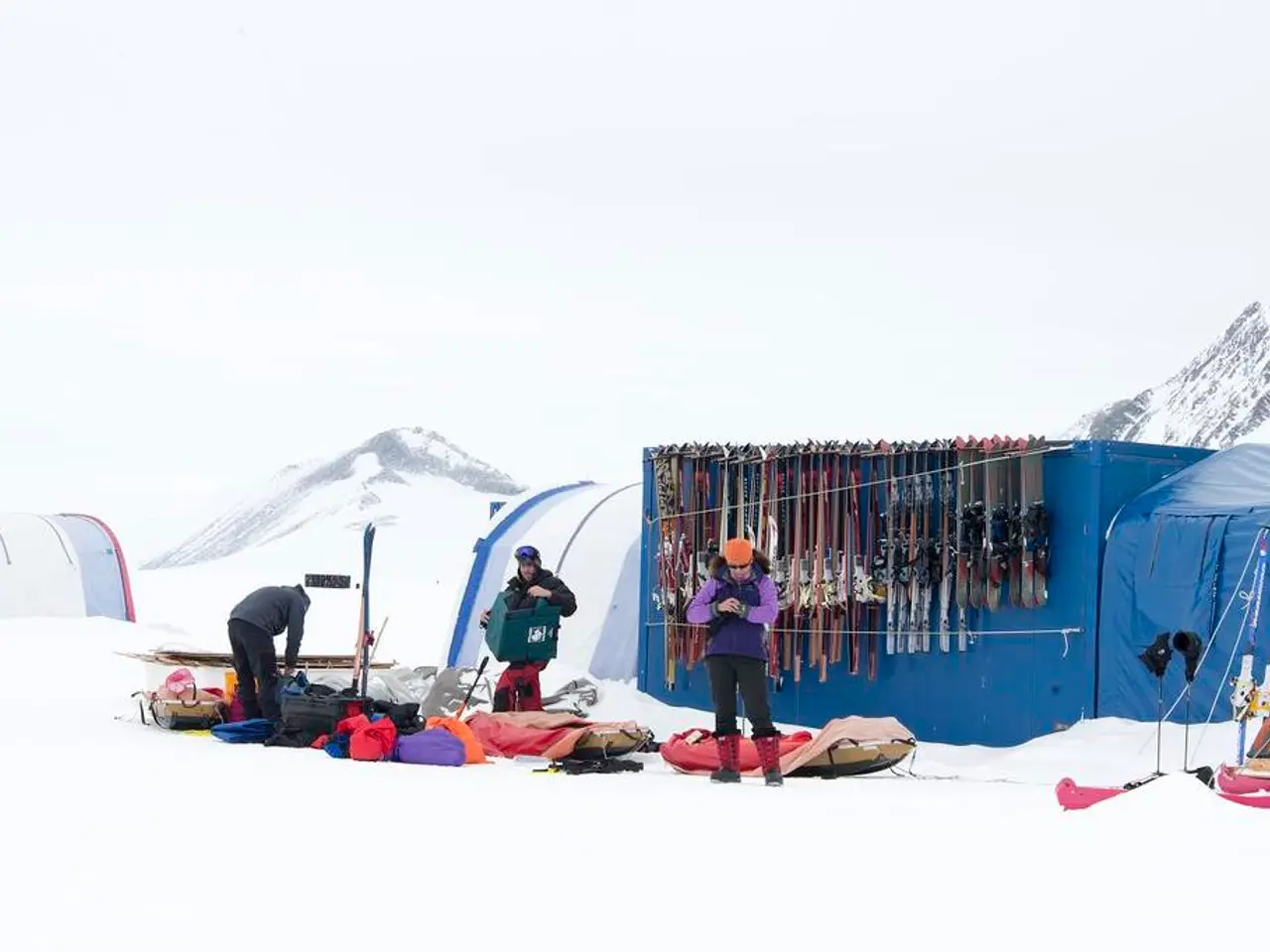Electoral schedule set by Bangladesh's interim administration for February
Bangladesh Announces Early Parliamentary Elections for February 2026
After a tumultuous year following the ouster of Sheikh Hasina's government, Bangladesh is set to hold early parliamentary elections in February 2026. The interim leader, Muhammad Yunus, announced the new election date in a televised address, aiming for the polls to take place before Ramadan.
The decision to hold early elections comes in response to mounting pressure from opposition parties, such as the Bangladesh Nationalist Party (BNP), which have been advocating for a neutral caretaker government to restore public trust and address past electoral irregularities. The previous elections, held in 2024, were deemed neither free nor fair by international observers, leading to widespread demands for democratic reform.
The opposition's response to the early elections is cautiously optimistic. The BNP supports the move, hoping for a "free and fair" electoral process, despite logistical challenges like updating electoral rolls across flood-affected regions. However, questions remain about the election's credibility without the participation of the Awami League, which has been banned from all political activities and had its registration suspended by the interim government. Critics argue that excluding the AL could undermine the election's legitimacy given that the party still commands significant support.
The current political situation in Bangladesh is fragile. The interim government, led by Yunus, has pledged to carry out constitutional and electoral reforms to ensure a credible election. Yet, progress has been limited so far, with ongoing political bickering and instability. There is concern that further delays or exclusion of major political forces could deepen the crisis, eroding democratic stability and potentially pushing Bangladesh toward authoritarianism.
Yunus took over the position of interim prime minister with the support of the powerful military a few days after Hasina's escape. The exact date of the elections in February has not been specified in the announcement, but the announcement could potentially impact the political landscape in Bangladesh.
References:
[1] BBC News. (2025, March 15). Bangladesh election: Interim PM Yunus calls for polls in February. Retrieved from https://www.bbc.com/news/world-asia-56369513
[2] Al Jazeera. (2025, March 15). Bangladesh interim PM Yunus calls for early polls, setting date for February 2026. Retrieved from https://www.aljazeera.com/news/2025/3/15/bangladesh-interim-pm-yunus-calls-for-early-polls-setting-date-for-february-2026
[3] The Diplomat. (2025, April 20). Bangladesh's Political Crisis: What Lies Ahead? Retrieved from https://thediplomat.com/2025/04/bangladeshs-political-crisis-what-lies-ahead/
[4] The New York Times. (2025, May 10). Bangladesh's Opposition Calls for Earlier Elections, Citing Need for Reform. Retrieved from https://www.nytimes.com/2025/05/10/world/asia/bangladesh-election-opposition.html
[5] Human Rights Watch. (2024, August 10). Bangladesh: More Than 1,400 Killed in Protests Since Hasina's Ouster. Retrieved from https://www.hrw.org/news/2024/08/10/bangladesh-more-than-1400-killed-protests-since-hasinas-ouster
- Concerns about the legitimacy of the upcoming parliamentary elections in Bangladesh have risen due to the exclusion of the Awami League, a significant political force that was banned from all activities by the interim government.
- The political landscape in Bangladesh may shift in response to the early parliamentary elections called by interim Prime Minister Muhammad Yunus, with migration and war-and-conflicts potentially affecting various community and employment policies, as well as policy-and-legislation and politics, given the general news about the instability in the nation.
- As the examination of policy-and-legislation and politics escalates, countries encumbered by war-and-conflicts and migration might look to Bangladesh for guidance amid the ongoing crisis, as the elections could impact the democratic stability of the region.




